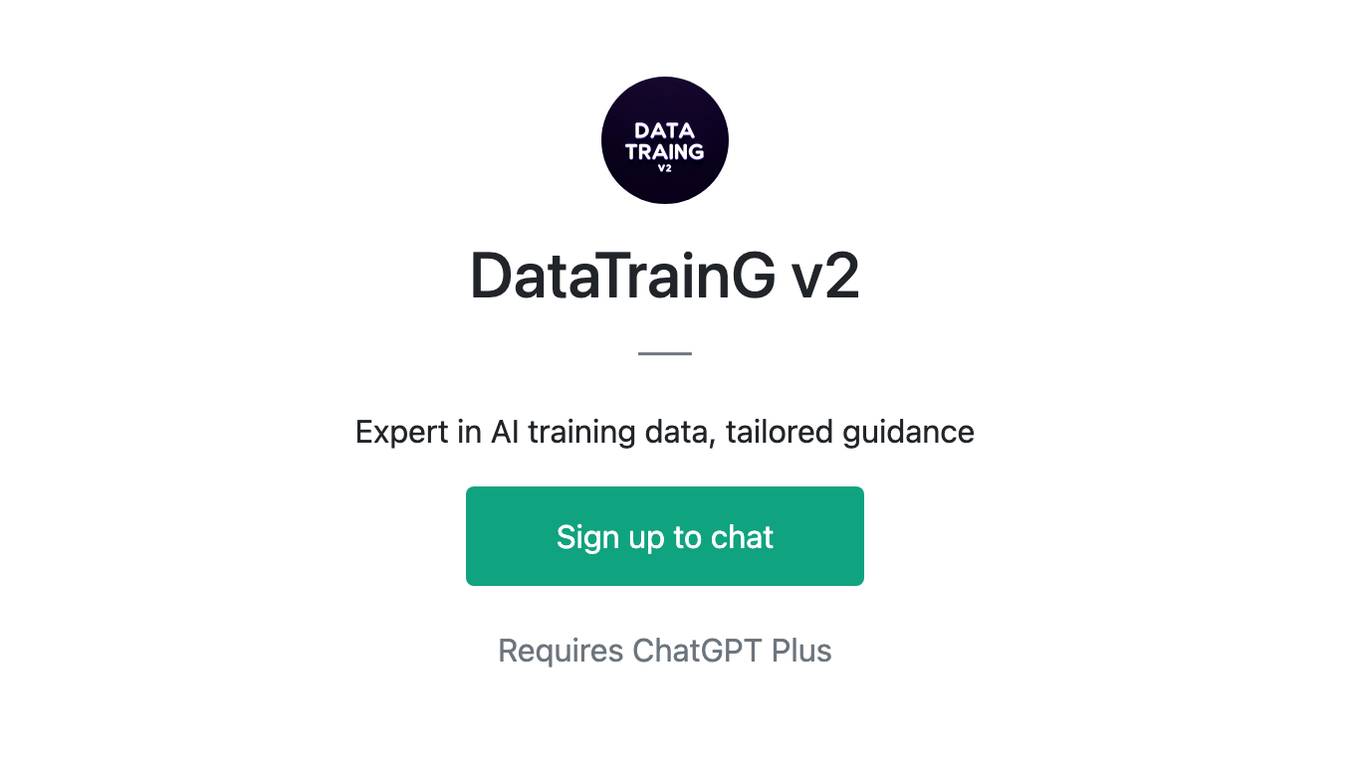Best AI tools for< Augment Data >
20 - AI tool Sites
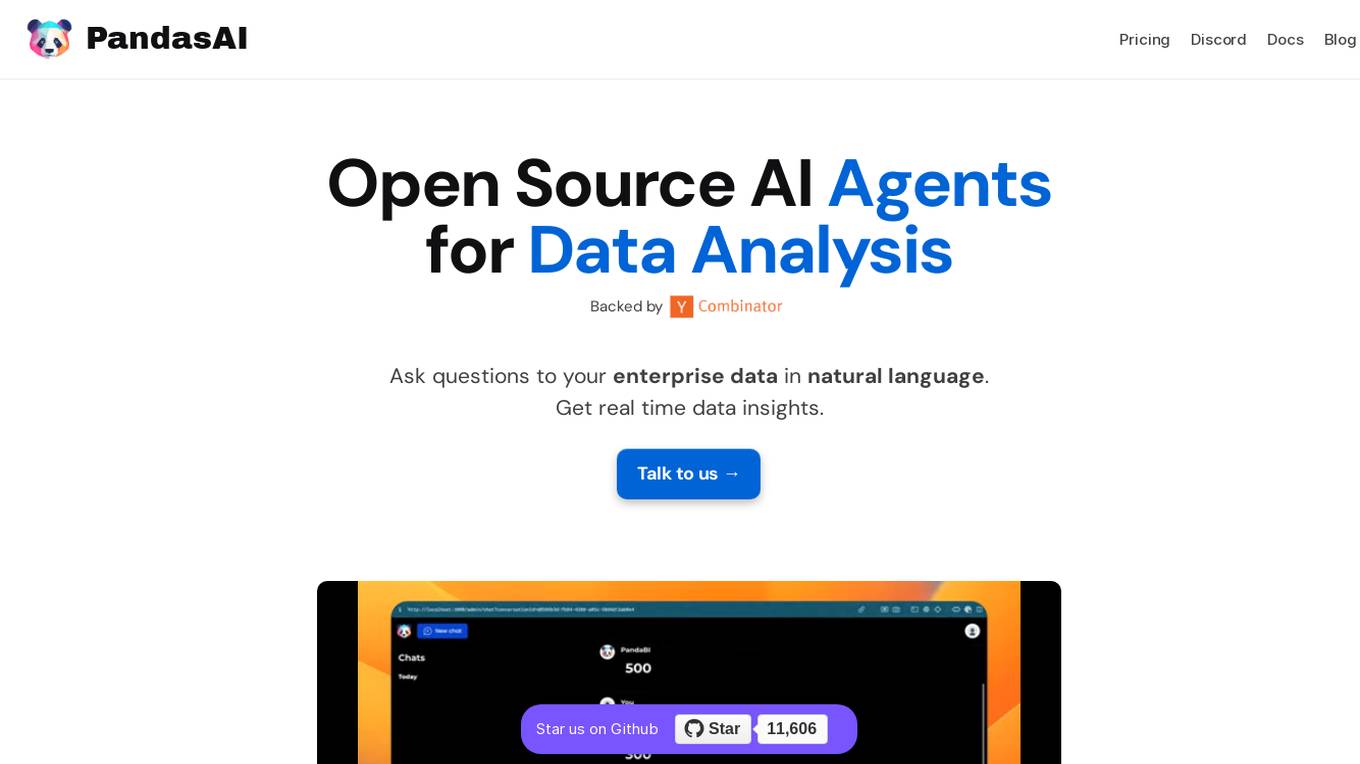
PandasAI
PandasAI is an open-source AI tool designed for conversational data analysis. It allows users to ask questions in natural language to their enterprise data and receive real-time data insights. The tool is integrated with various data sources and offers enhanced analytics, actionable insights, detailed reports, and visual data representation. PandasAI aims to democratize data analysis for better decision-making, offering enterprise solutions for stable and scalable internal data analysis. Users can also fine-tune models, ingest universal data, structure data automatically, augment datasets, extract data from websites, and forecast trends using AI.
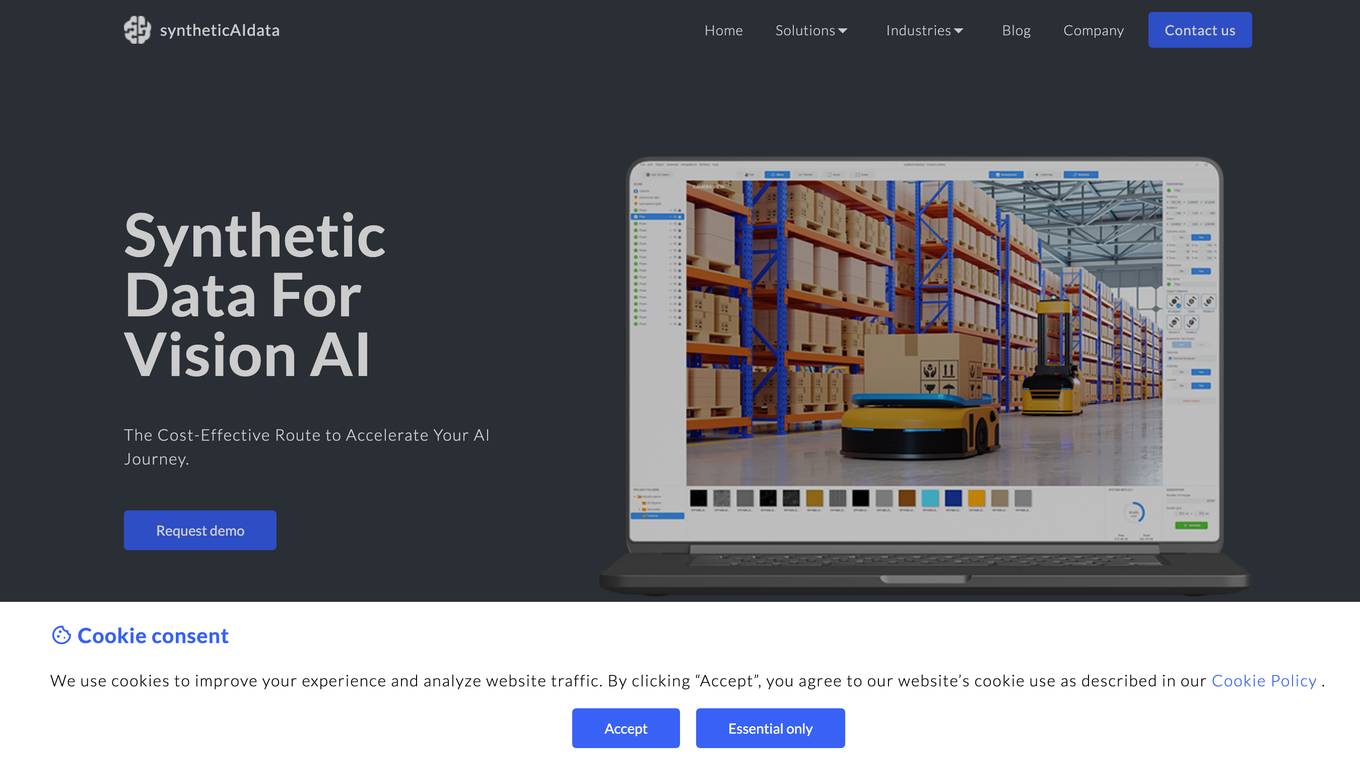
syntheticAIdata
syntheticAIdata is a platform that provides synthetic data for training vision AI models. Synthetic data is generated artificially, and it can be used to augment existing real-world datasets or to create new datasets from scratch. syntheticAIdata's platform is easy to use, and it can be integrated with leading cloud platforms. The company's mission is to make synthetic data accessible to everyone, and to help businesses overcome the challenges of acquiring high-quality data for training their vision AI models.
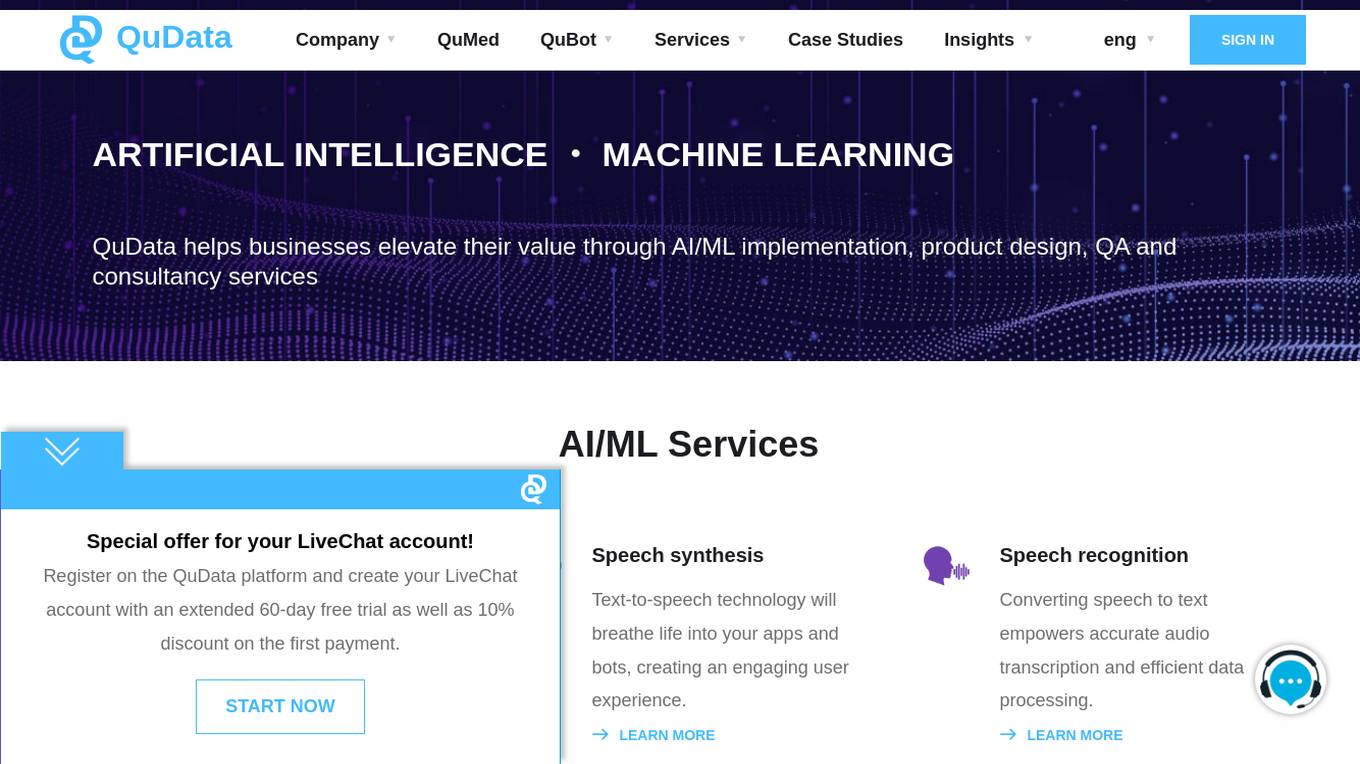
QuData
QuData is an AI and ML solutions provider that helps businesses enhance their value through AI/ML implementation, product design, QA, and consultancy services. They offer a range of services including ChatGPT integration, speech synthesis, speech recognition, image analysis, text analysis, predictive analytics, big data analysis, innovative research, and DevOps solutions. QuData has extensive experience in machine learning and artificial intelligence, enabling them to create high-quality solutions for specific industries, helping customers save development costs and achieve their business goals.
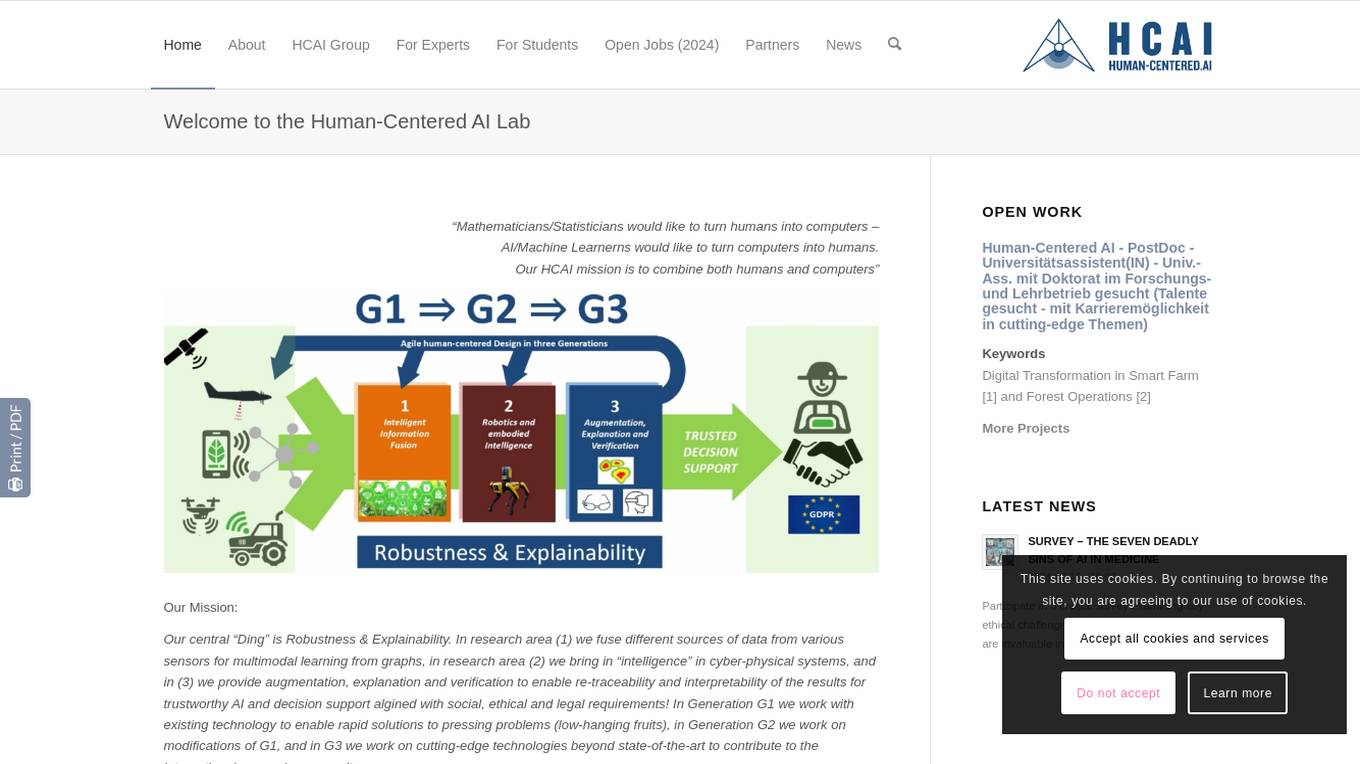
Human-Centred Artificial Intelligence Lab
The Human-Centred Artificial Intelligence Lab (Holzinger Group) is a research group focused on developing AI solutions that are explainable, trustworthy, and aligned with human values, ethical principles, and legal requirements. The lab works on projects related to machine learning, digital pathology, interactive machine learning, and more. Their mission is to combine human and computer intelligence to address pressing problems in various domains such as forestry, health informatics, and cyber-physical systems. The lab emphasizes the importance of explainable AI, human-in-the-loop interactions, and the synergy between human and machine intelligence.
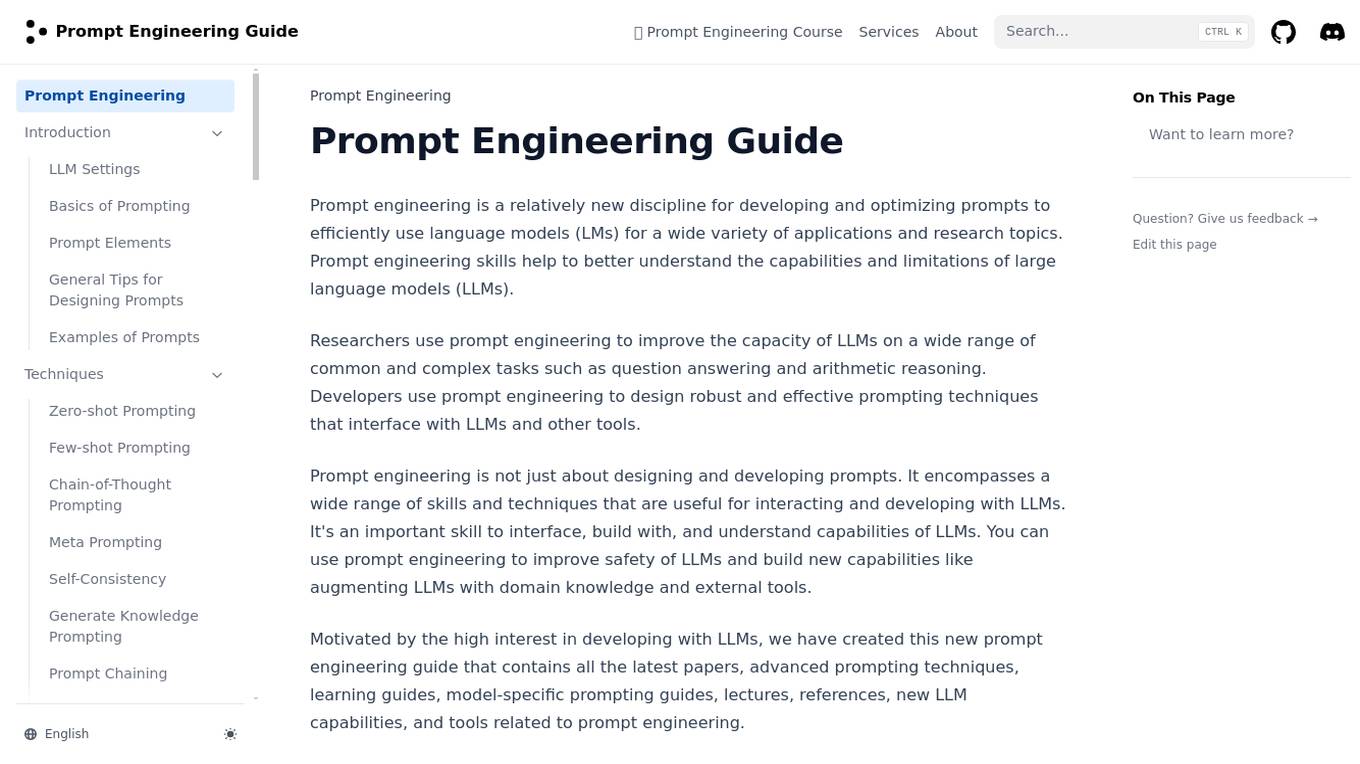
Prompt Engineering
Prompt Engineering is a discipline focused on developing and optimizing prompts to efficiently utilize language models (LMs) for various applications and research topics. It involves skills to understand the capabilities and limitations of large language models, improving their performance on tasks like question answering and arithmetic reasoning. Prompt engineering is essential for designing robust prompting techniques that interact with LLMs and other tools, enhancing safety and building new capabilities by augmenting LLMs with domain knowledge and external tools.
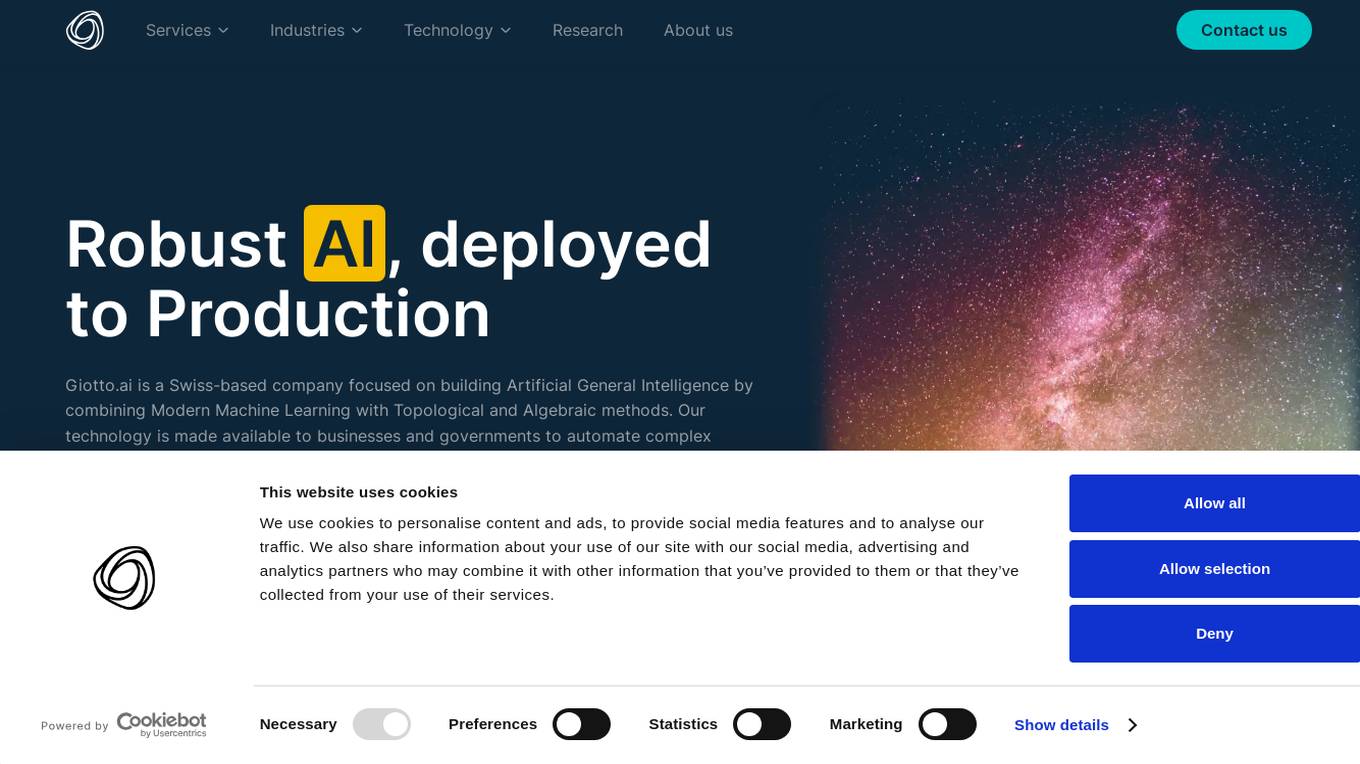
Giotto.ai
Giotto.ai is a Swiss-based company focused on building Artificial General Intelligence by combining Modern Machine Learning with Topological and Algebraic methods. They offer AI Strategy Consulting, AI Application Development, AI Model Integrations, AI R&D Services, and on-demand AI & Tech Talent Solutions. The company provides services to various industries such as Insurance, Finance, Logistics, Healthcare, Education, Retail, Manufacturing, and Defence. Giotto.ai aims to automate complex processes with a high level of robustness and explainability, driving innovation in the technological space.
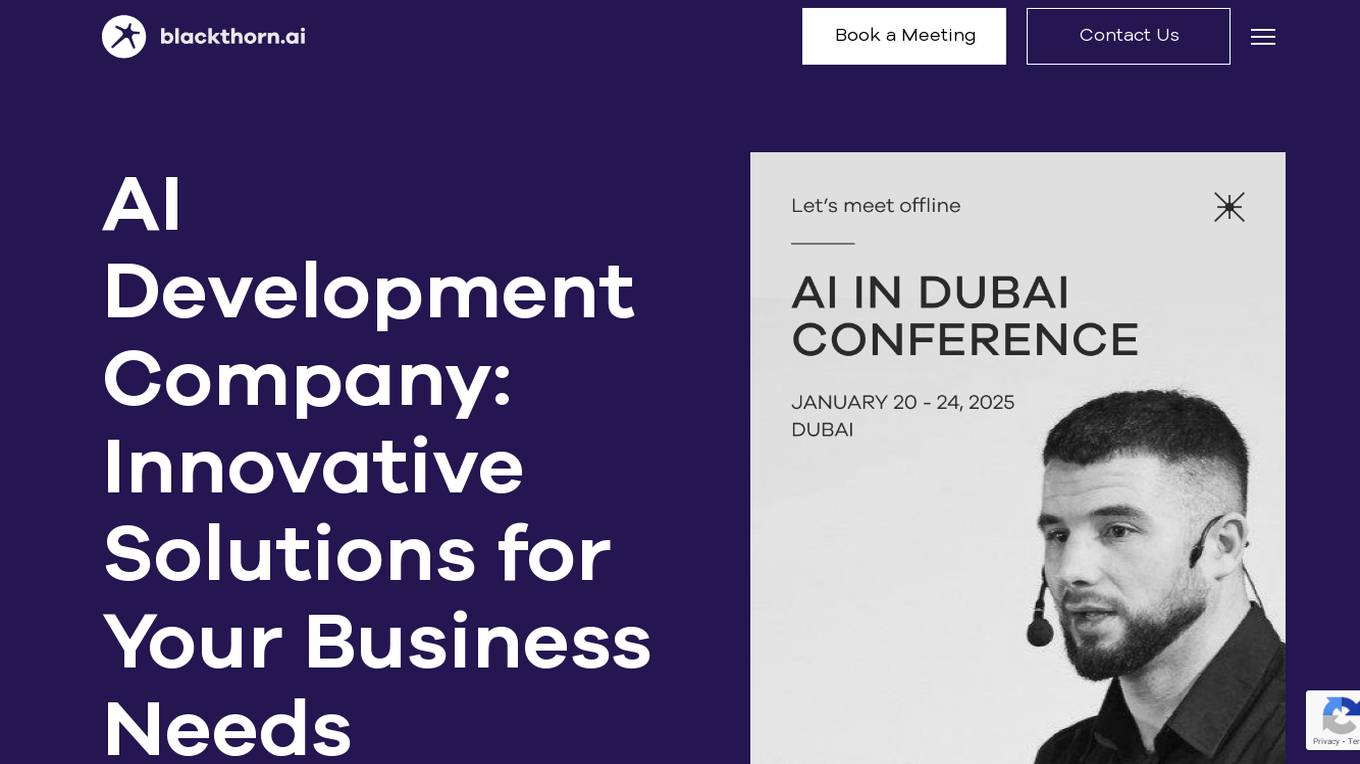
Blackthorn AI
Blackthorn AI is an AI development company offering innovative solutions for businesses across various industries. With a focus on AI & ML development services, generative AI, big data analytics, and custom software development, Blackthorn AI aims to transform businesses with precision and measurable results. The company has a proven track record of successful projects and a team of certified experts, delivering enterprise-grade accuracy and results. Recognized as a top AI company, Blackthorn AI specializes in solving complex challenges and empowering businesses to innovate and excel in a competitive market.
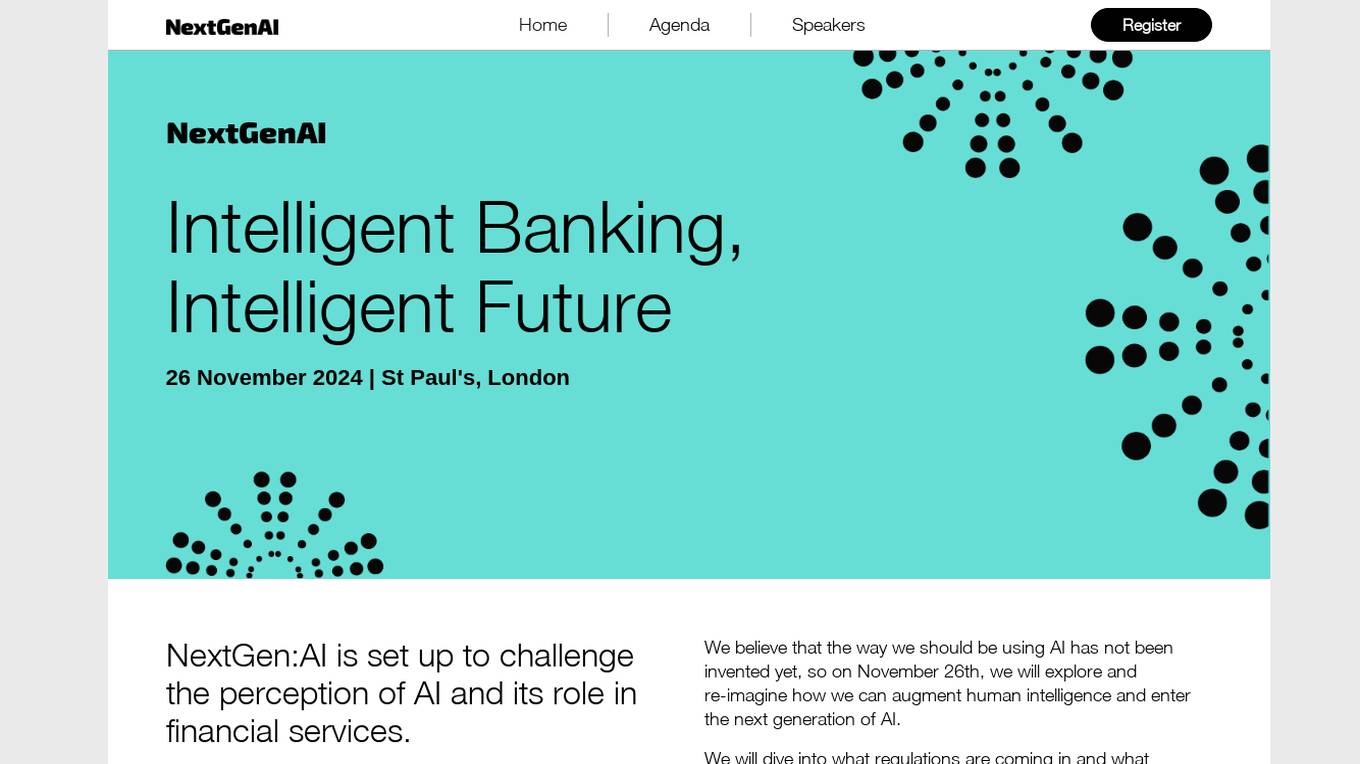
NextGenAI
NextGenAI is an AI application focused on the financial services industry. It aims to challenge the current perception of AI and its role in banking and financial institutions. The platform explores innovative ways to augment human intelligence and propel the financial sector into the next generation of AI. Through a combination of keynotes, panels, demos, and workshops, NextGenAI facilitates discussions on AI regulations, industry best practices, and collaboration opportunities.
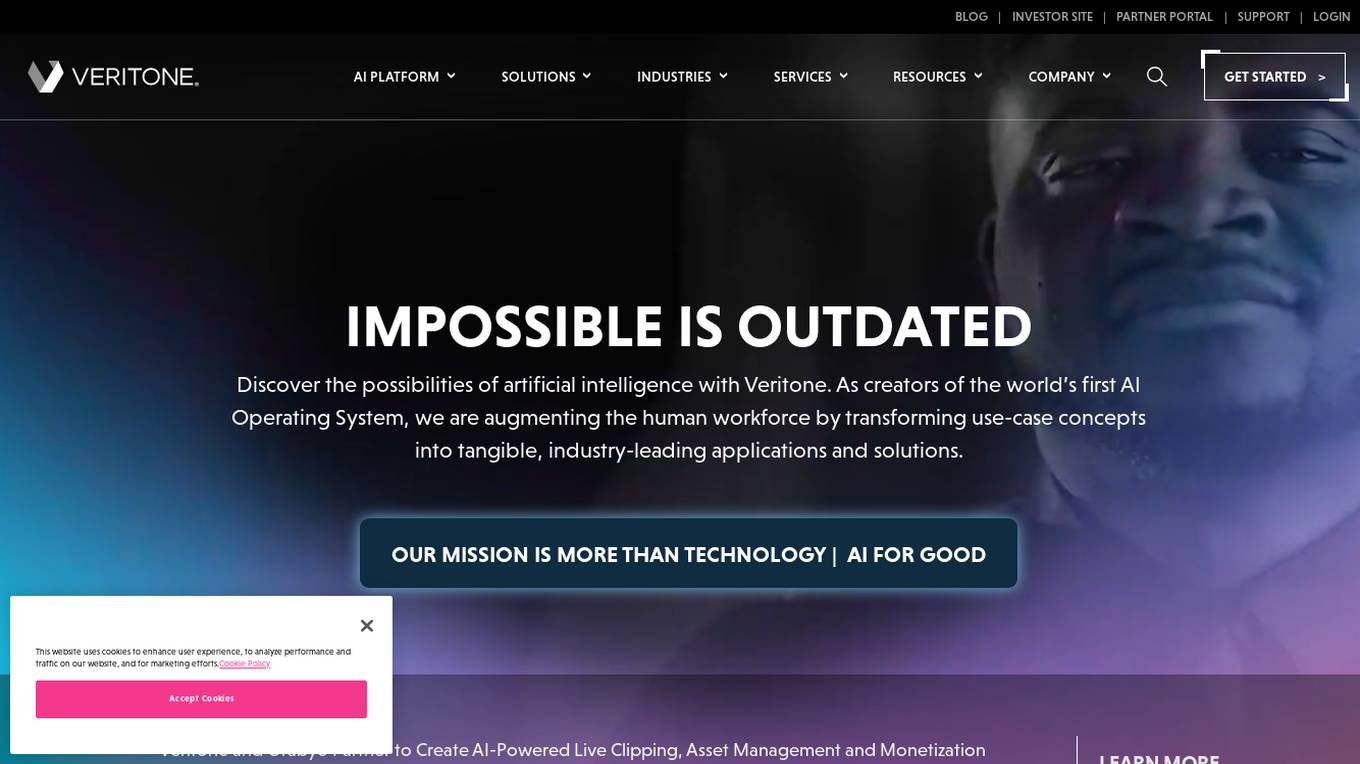
Veritone
Veritone is a leading provider of artificial intelligence (AI) solutions for businesses. Its flagship product, aiWARE, is an enterprise AI platform that provides access to hundreds of cognitive engines through one common software infrastructure. Veritone's AI solutions are used by businesses in a variety of industries, including media and entertainment, recruitment, government, legal and compliance, and sports. Veritone's mission is to augment the human workforce by transforming use-case concepts into tangible, industry-leading applications and solutions.
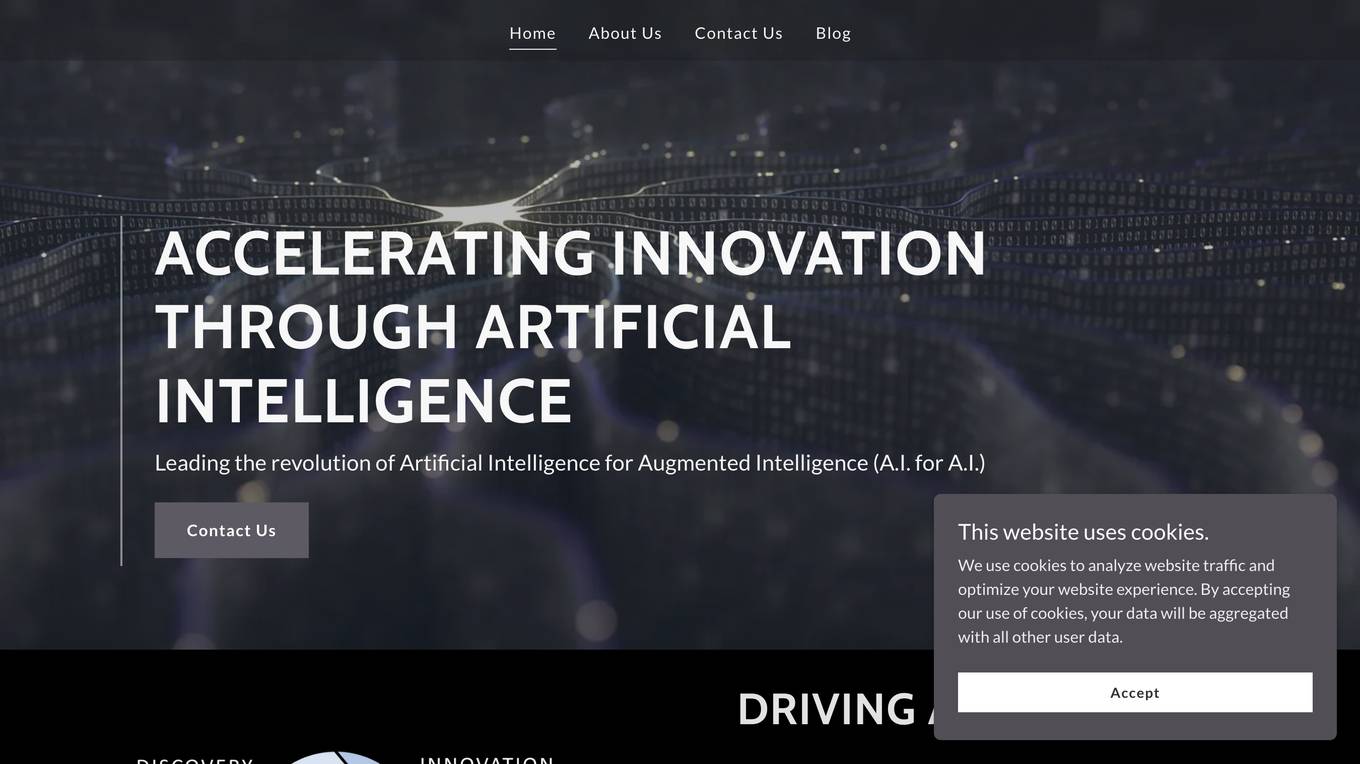
Gemini AI
Gemini AI is a cutting-edge AI and ML solutions provider that focuses on accelerating innovation through artificial intelligence. The website offers expertise in areas such as computer vision, geospatial science, human health, and integrative technologies. Gemini AI leverages the power of AI and ML to solve complex problems, enhance decision-making, and augment human intelligence. The services provided include data and sensor analysis, modeling using deep learning techniques, and deployment of predictive models for real-time insights.

SparkCognition Government Systems
SparkCognition Government Systems (SGS) is a full-spectrum artificial intelligence company dedicated to government and national defense missions. The company leverages AI technologies such as machine learning, natural language processing, and computer vision to enhance mission readiness, battle management, logistics, security, and manufacturing optimization. SparkCognition Government Systems focuses on delivering targeted AI solutions to amplify asset readiness, augment human intelligence, and accelerate decision-making processes for government organizations.

Botsy
Botsy is an AI chatbot builder designed for WhatsApp, enabling users to create conversational AI chatbots without the need for coding. It allows for natural conversations, brand customization, audience management, user data analysis, and knowledge augmentation. Botsy offers usage-based pricing with discounts for larger message bundles, along with hands-on training and tech support for customers. The platform aims to leverage AI for social impact by providing personalized AI services to communities in need.

Prefit.AI
Prefit.AI is a generative AI search engine that enables users to quickly generate new content based on a variety of inputs. It can explore and analyze complex data in new ways, discover new trends and patterns, and summarize content, outline multiple solution paths, brainstorm ideas, and create detailed documentation from research notes. Prefit.AI can also respond naturally to human conversation and serve as a tool for customer service and personalization of customer workflows. It can augment employee workflows and act as efficient assistants for everyone in your organization.

Dreamwave
Dreamwave is an AI research lab developing new ways to augment human creativity with artificial intelligence. Its products include AI headshots, team headshots, and custom photo studios. AI headshots can be generated in minutes, and team headshots can be generated consistently to scale with growing companies. Custom photo studios allow users to generate new photos of themselves with any scene, outfit, or hair. Dreamwave is committed to empowering human creativity, safe and unbiased representation, and secure and private data.
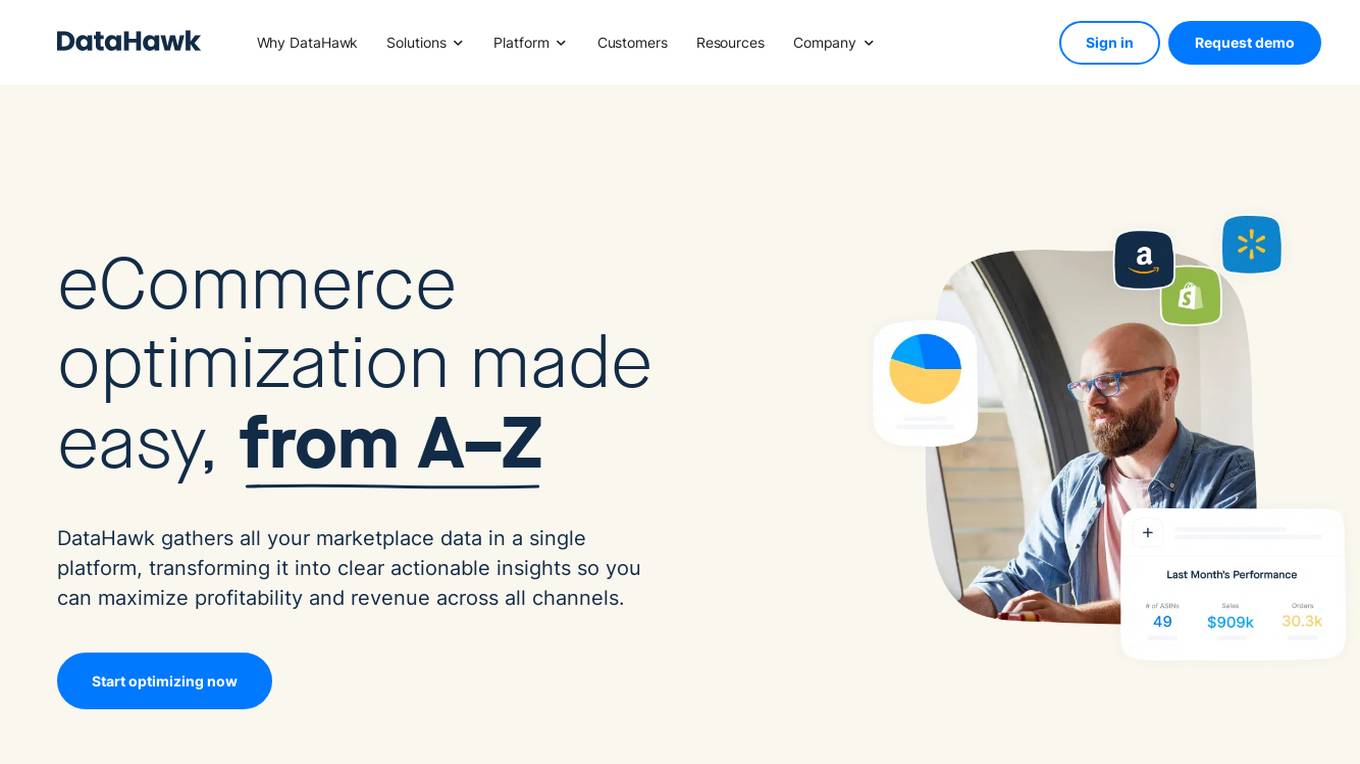
DataHawk
DataHawk is an eCommerce analytics platform powered by AI that helps users optimize their eCommerce operations from A to Z. It provides competitive intelligence, performance analysis, conversion optimization, sales growth, brand image protection, traffic generation, and more. DataHawk offers automated data collection, composable analytics, AI-powered productivity, integrations, exclusive datasets, and professional services. The platform empowers users with end-to-end visibility, comprehensive marketplace data, flexibility, control over operational data, and expert support. With AI capabilities, DataHawk automates data collection, detects anomalies, generates recommended actions, and augments productivity. The platform enhances revenue, RoAS, and time savings for users, supported by dedicated experts and customer success stories.
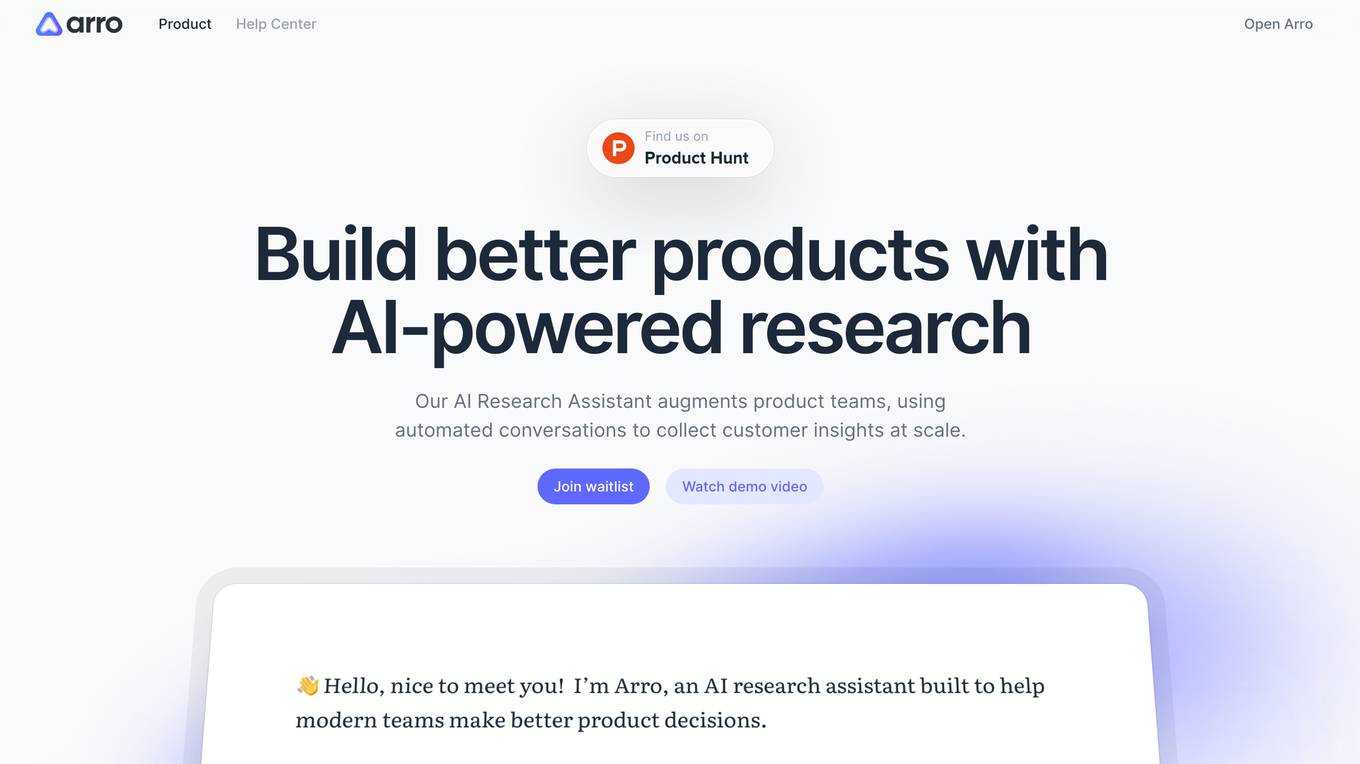
Arro
Arro is an AI-powered research assistant that helps product teams collect customer insights at scale. It uses automated conversations to conduct user interviews with thousands of customers simultaneously, generating product opportunities that can be directly integrated into the product roadmap. Arro's innovative AI-led methodology combines the depth of user interviews with the speed and scale of surveys, enabling product teams to gain a comprehensive understanding of their customers' needs and preferences.
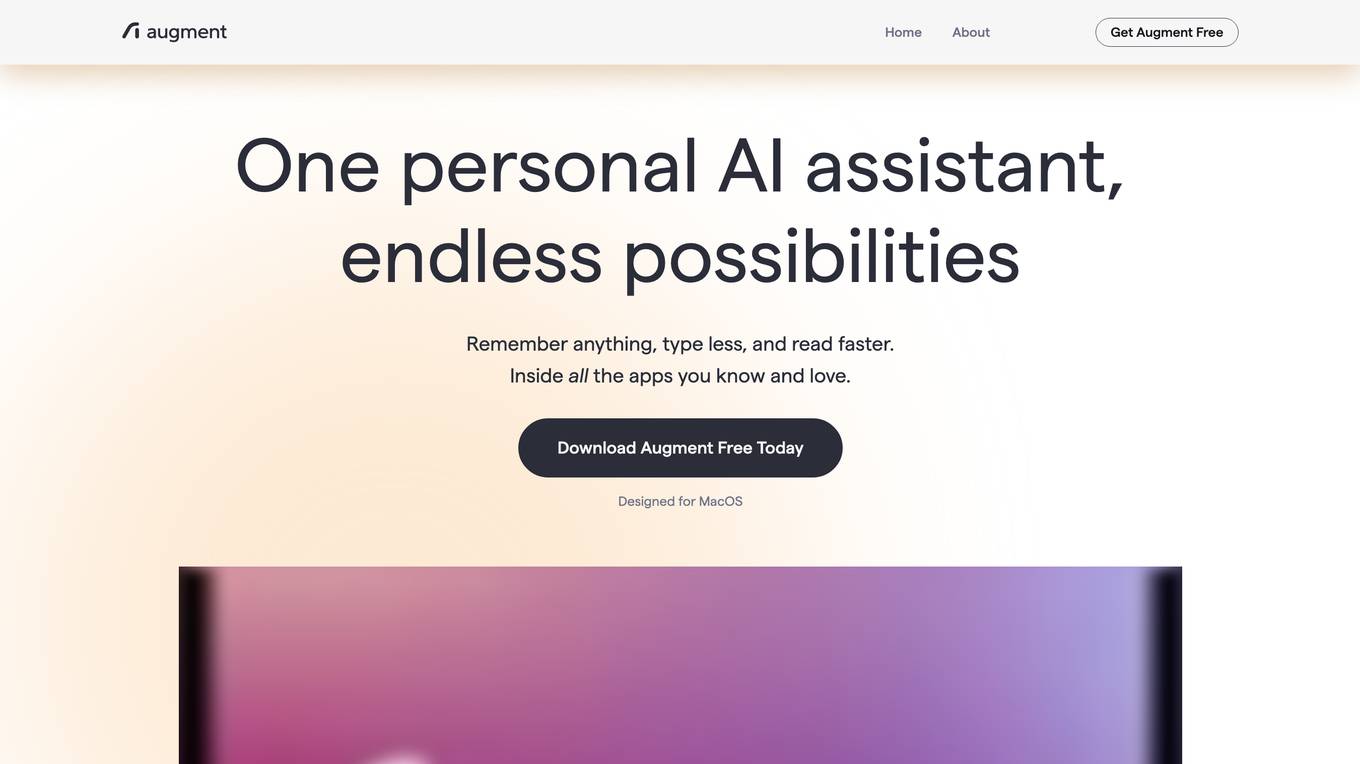
Augment
Augment is a personal AI assistant that helps you remember anything, type less, and read faster. It works inside all the apps you know and love, so you can stay focused on the task at hand. Augment is designed for macOS and is trusted by professionals from all walks of life.
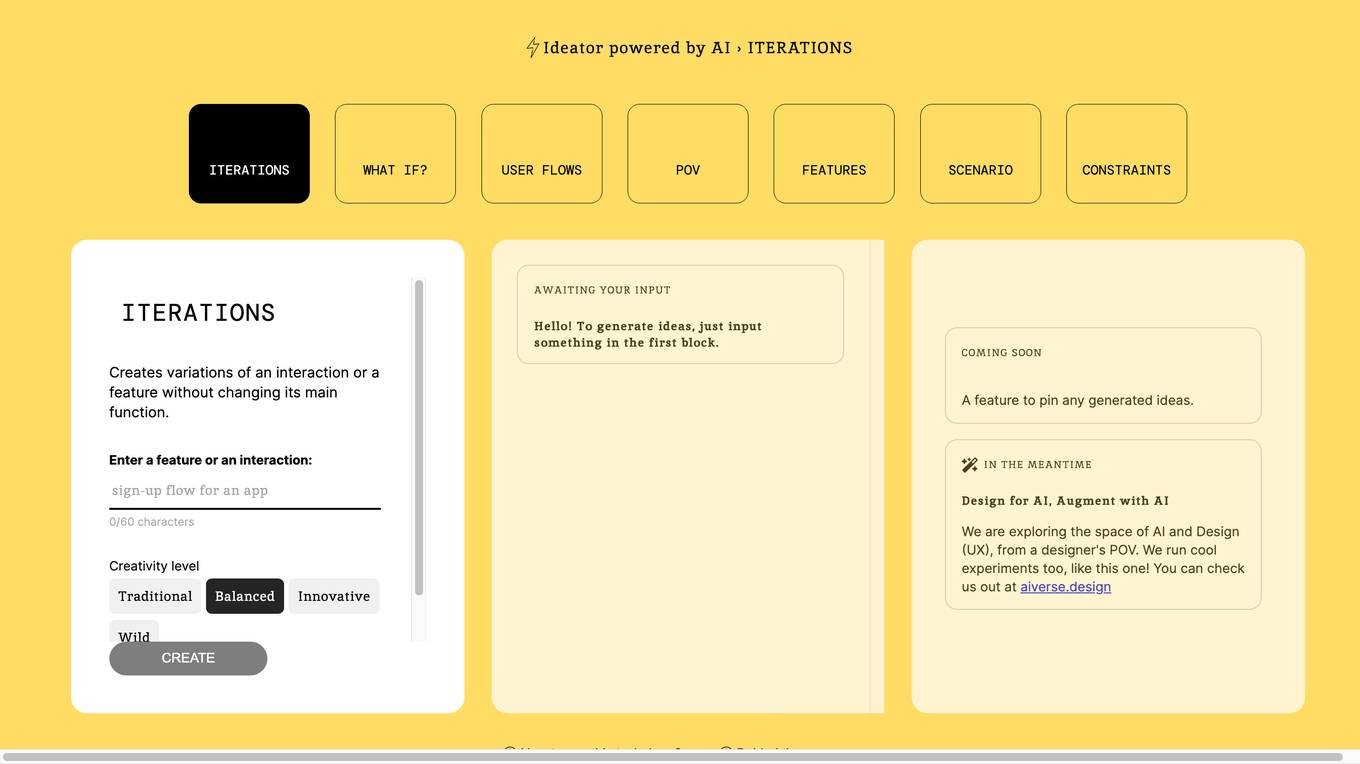
Ideator
Ideator is an AI-powered tool that helps designers and innovators generate creative ideas. It allows users to input a feature or interaction and then generates different variations of how it could be used, while keeping its main job the same. Ideator is still under development, but it has the potential to be a valuable tool for designers and innovators who are looking for new and creative ways to solve problems.
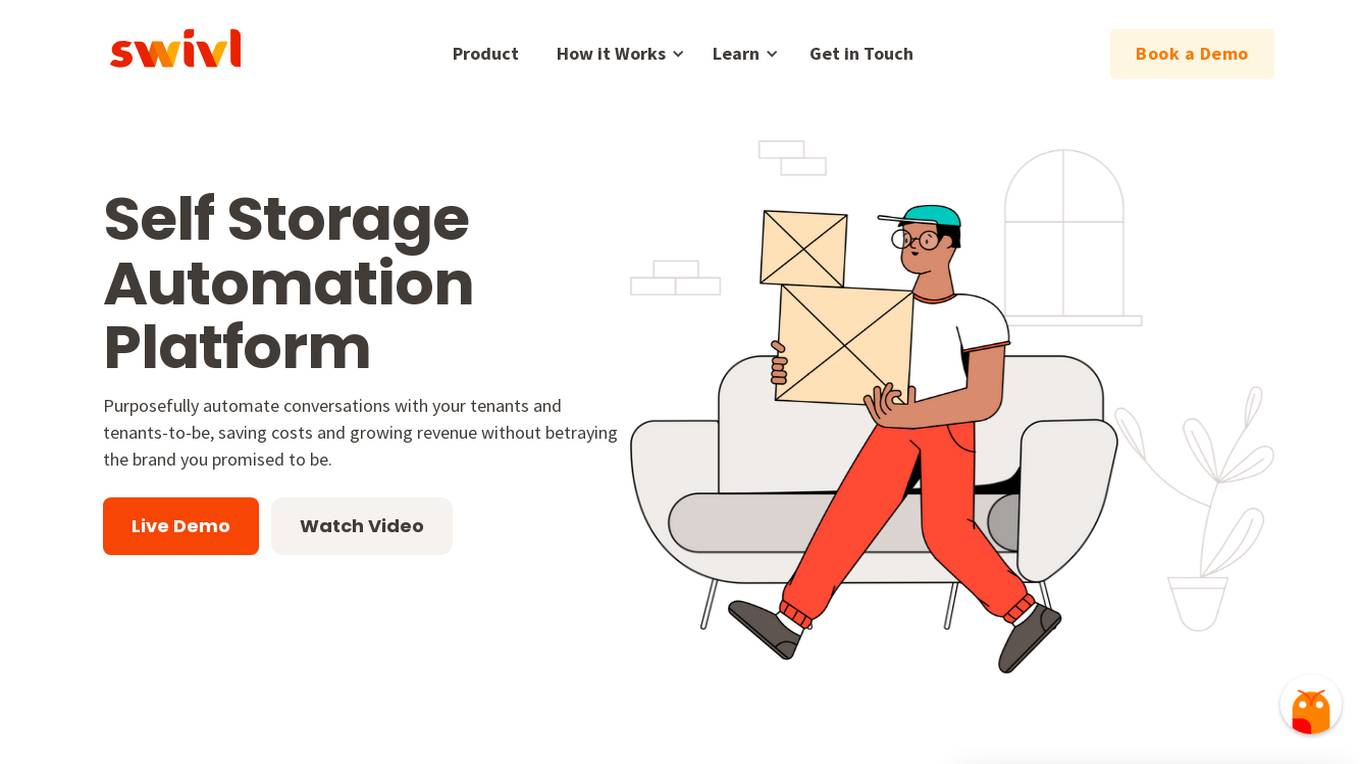
Swivl
Swivl is an automation platform designed for self-storage businesses, offering intelligent automation solutions to streamline operations and enhance customer interactions. The platform leverages conversational AI technology to automate conversations with tenants, drive revenue, and augment workforce capabilities. Swivl aims to simplify the rental process, save costs, and increase revenue for self-storage operators while maintaining brand integrity. The platform is trusted by self-storage leaders for its ability to automate customer touchpoints, provide automated customer support and sales assistance, and enhance team productivity. With features like digital assistants, online self-service automation, inventory recommendations, call center deflection, and omni-channel experiences, Swivl is a comprehensive solution for self-storage businesses.
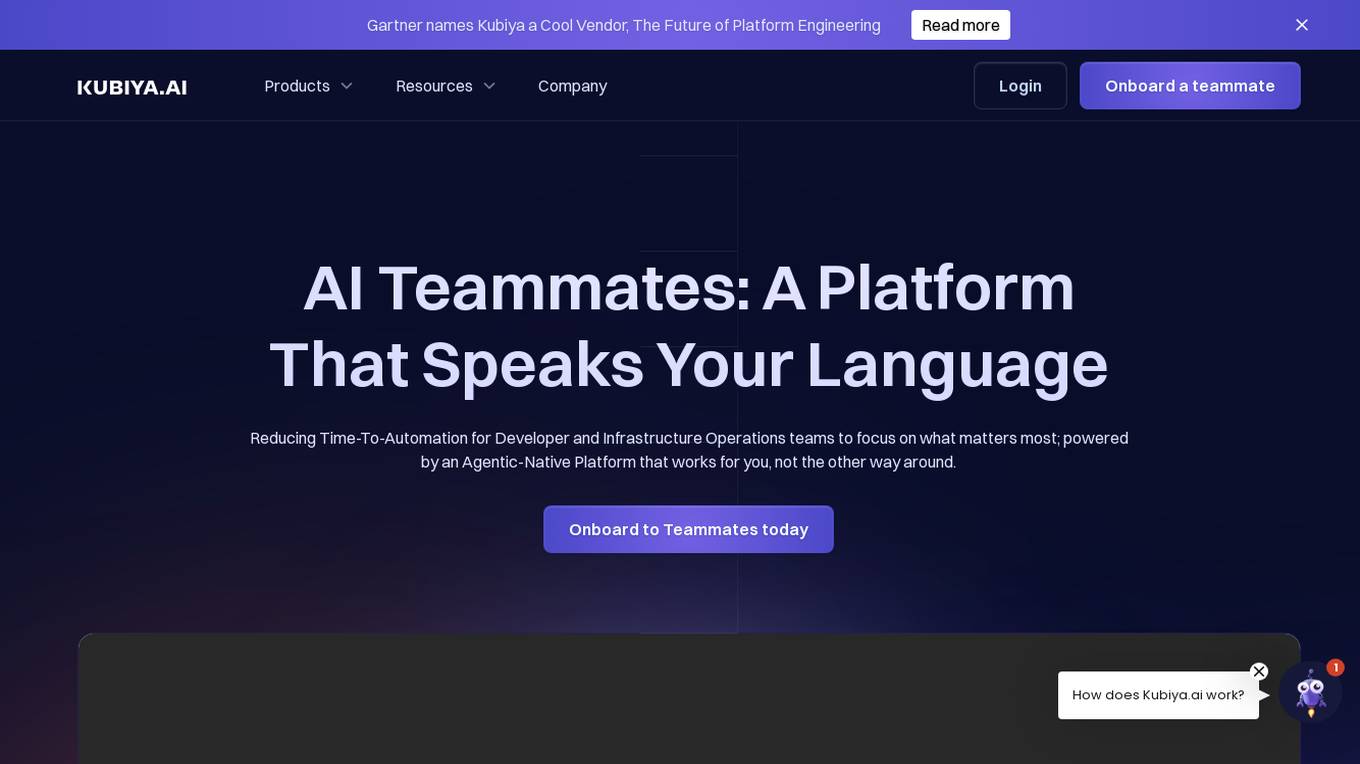
Kubiya
Kubiya is an AI-powered platform designed to reduce Time-To-Automation for Developer and Infrastructure Operations teams. It allows users to focus on high-impact work by automating routine tasks and processes, powered by an Agentic-Native Platform. Kubiya is trusted by world-class engineering and operations teams, offering features such as AI teammates, JIT Permissions, Infrastructure Provisioning, Help Desk support, and Incident Response automation.
3 - Open Source AI Tools
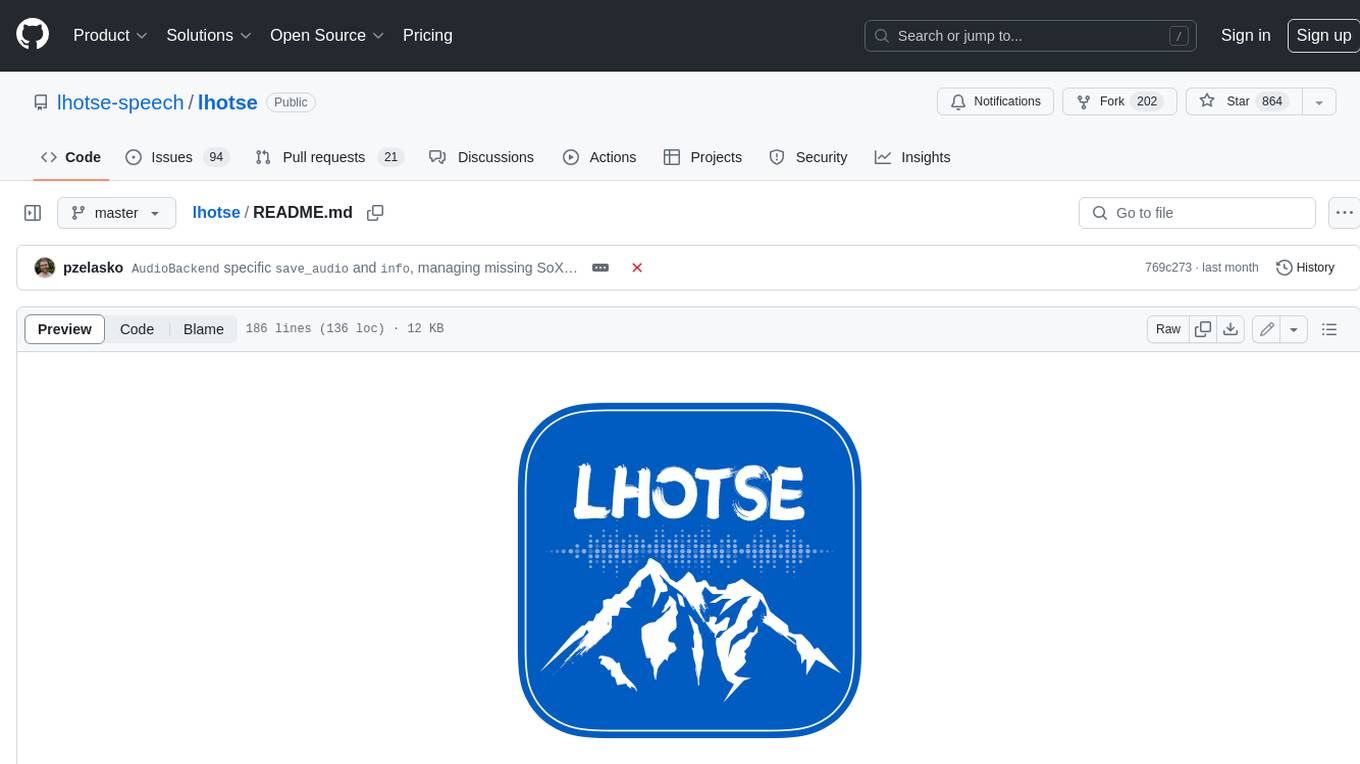
lhotse
Lhotse is a Python library designed to make speech and audio data preparation flexible and accessible. It aims to attract a wider community to speech processing tasks by providing a Python-centric design and an expressive command-line interface. Lhotse offers standard data preparation recipes, PyTorch Dataset classes for speech tasks, and efficient data preparation for model training with audio cuts. It supports data augmentation, feature extraction, and feature-space cut mixing. The tool extends Kaldi's data preparation recipes with seamless PyTorch integration, human-readable text manifests, and convenient Python classes.
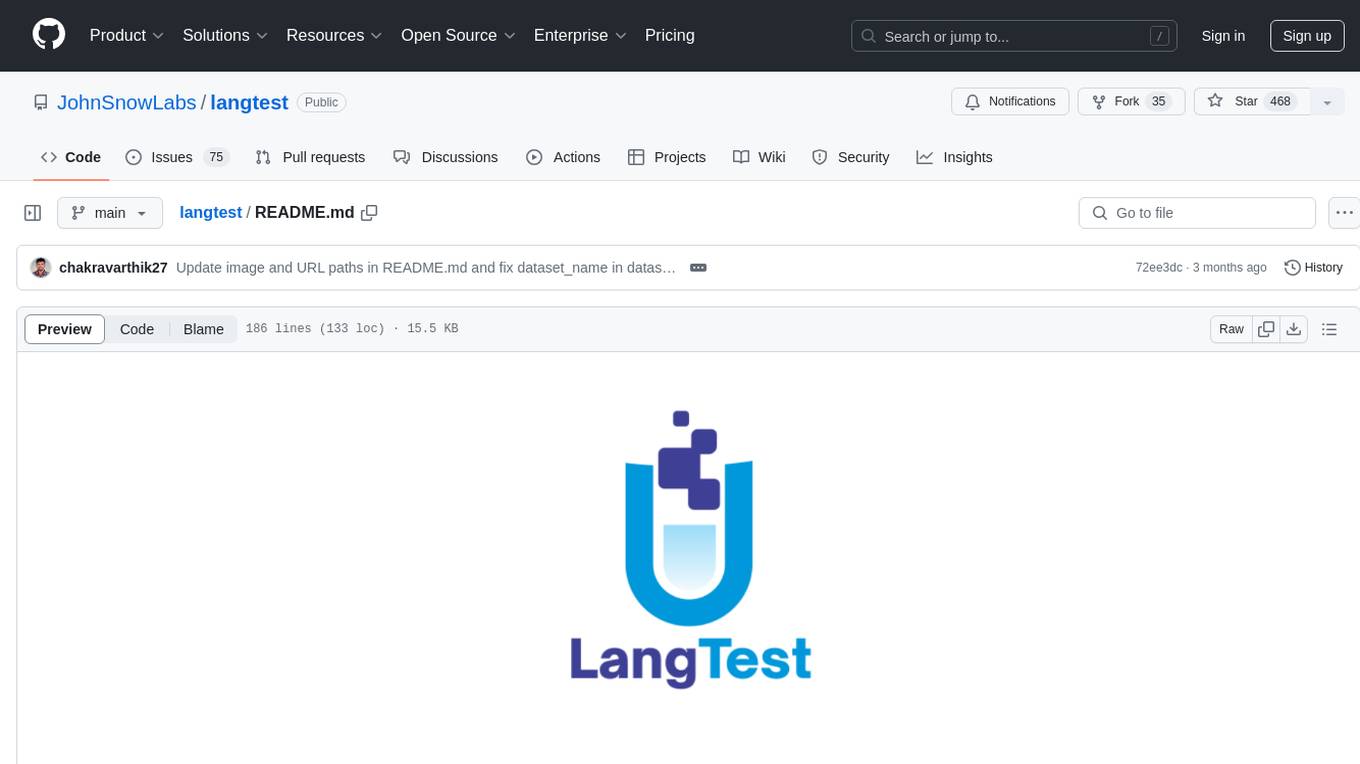
langtest
LangTest is a comprehensive evaluation library for custom LLM and NLP models. It aims to deliver safe and effective language models by providing tools to test model quality, augment training data, and support popular NLP frameworks. LangTest comes with benchmark datasets to challenge and enhance language models, ensuring peak performance in various linguistic tasks. The tool offers more than 60 distinct types of tests with just one line of code, covering aspects like robustness, bias, representation, fairness, and accuracy. It supports testing LLMS for question answering, toxicity, clinical tests, legal support, factuality, sycophancy, and summarization.
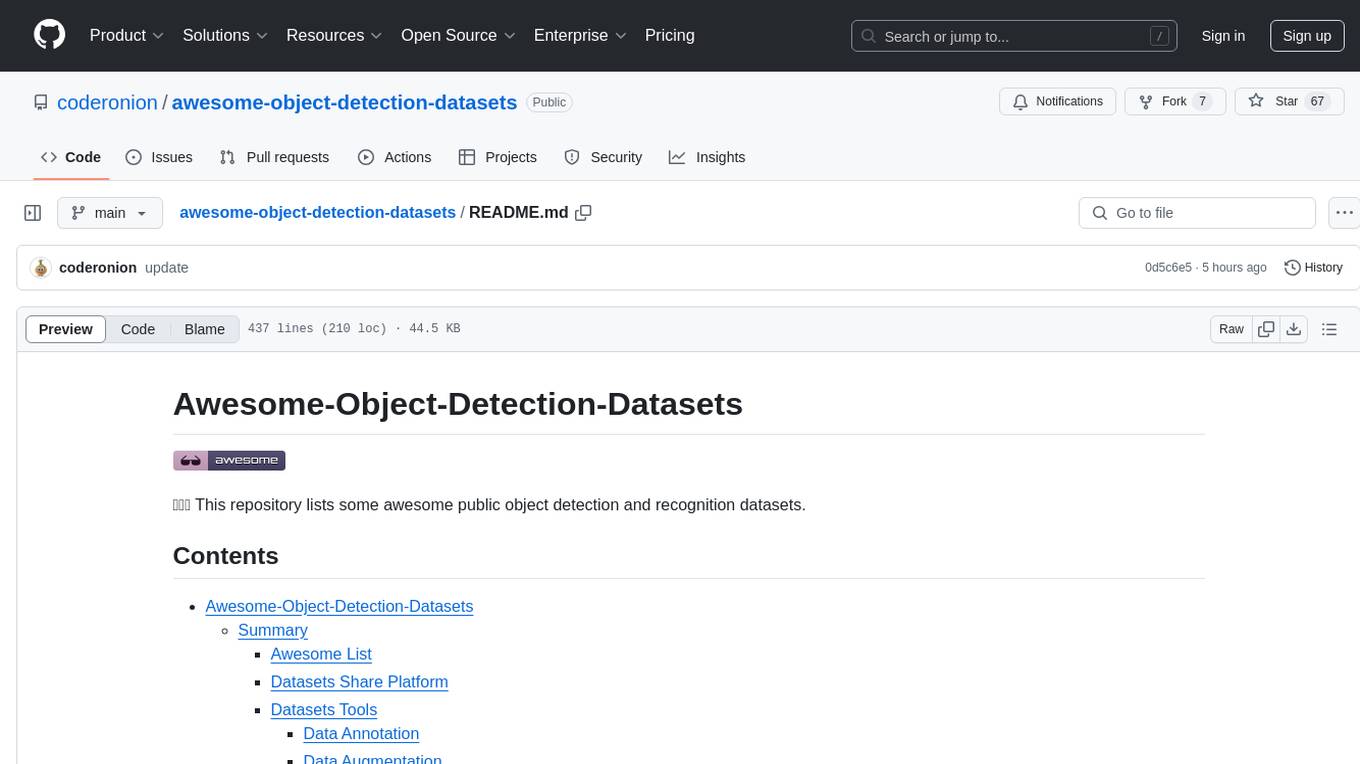
awesome-object-detection-datasets
This repository is a curated list of awesome public object detection and recognition datasets. It includes a wide range of datasets related to object detection and recognition tasks, such as general detection and recognition datasets, autonomous driving datasets, adverse weather datasets, person detection datasets, anti-UAV datasets, optical aerial imagery datasets, low-light image datasets, infrared image datasets, SAR image datasets, multispectral image datasets, 3D object detection datasets, vehicle-to-everything field datasets, super-resolution field datasets, and face detection and recognition datasets. The repository also provides information on tools for data annotation, data augmentation, and data management related to object detection tasks.
